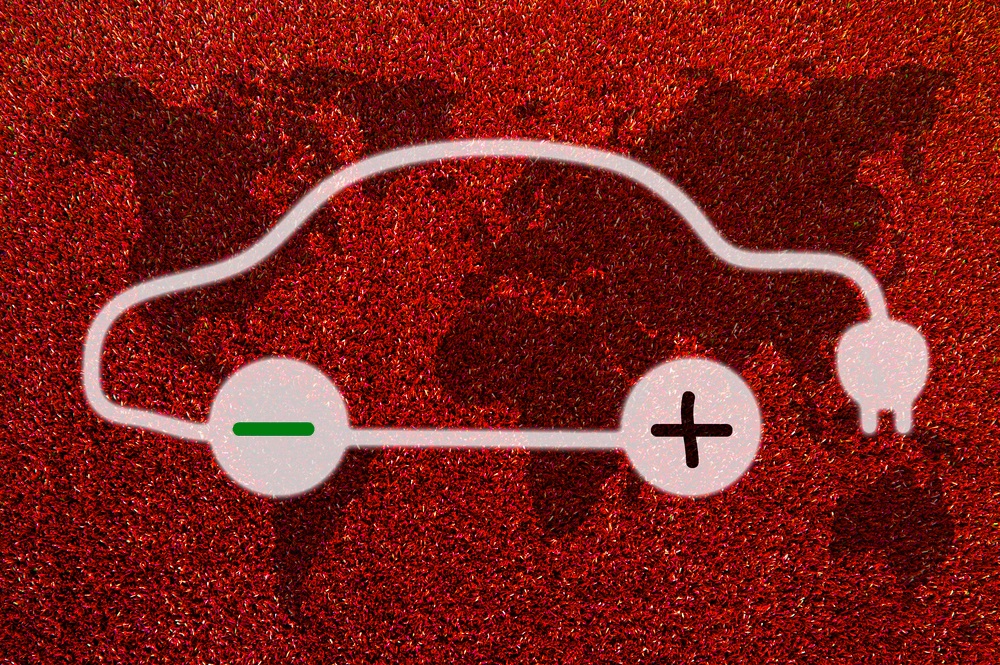Increased Resistance From Car Dealers To Government EV Mandates

Table of Contents
Financial Concerns and Infrastructure Limitations
One of the primary drivers of resistance is the significant financial burden placed on car dealerships by the shift to EVs. The high upfront costs associated with EV inventory are substantial. Dealerships must invest in new showrooms, charging infrastructure, and specialized equipment, representing a considerable capital outlay that many smaller dealerships may struggle to manage. This is exacerbated by potentially lower profit margins on EVs compared to traditional gasoline vehicles, particularly in the current market climate. The uncertainty surrounding future consumer demand for EVs adds another layer of risk. Dealerships are hesitant to invest heavily in infrastructure and inventory if they aren't confident of a sufficient return on investment.
- Higher initial investment in EV inventory: EVs often have a higher purchase price than comparable gasoline vehicles.
- Lack of government support for dealership EV infrastructure upgrades: Many governments offer incentives for consumers but fail to provide sufficient support for dealerships to upgrade their facilities.
- Uncertainty about consumer demand for EVs in specific regions: Market saturation and regional variations in consumer preferences create significant financial uncertainty.
- Need for specialized EV mechanic training and tools: Servicing EVs requires specialized knowledge and tools, adding to the overall cost of dealership operation.
Consumer Demand and Sales Challenges
Beyond the financial aspects, car dealers are grappling with challenges related to consumer demand and sales. Range anxiety, the fear of running out of battery charge, remains a significant barrier to EV adoption for many potential buyers. Educating consumers about the benefits of EVs, dispelling myths, and overcoming this anxiety requires significant marketing and educational efforts, which are costly and time-consuming.
- Range anxiety as a major barrier to EV adoption: Concerns about limited driving range continue to deter potential EV buyers.
- Lack of consumer awareness regarding EV benefits and government incentives: Many consumers are unaware of the financial incentives and environmental benefits associated with EVs.
- Difficulty in demonstrating the value proposition of EVs compared to gasoline cars: Clearly communicating the long-term cost savings and environmental advantages of EVs is a challenge.
- Concerns about the resale value of EVs in the long term: Uncertainty regarding future battery technology and the lifespan of EV batteries impacts resale value concerns.
Training and Skill Gaps for EV Servicing
The transition to EVs requires a significant upskilling of the automotive workforce. Dealerships need specialized training and equipment to service and repair EVs, a process that demands a substantial investment of time and money. The lack of qualified EV technicians represents a potential bottleneck in the transition, leading to longer service times and potential customer dissatisfaction.
- High cost of specialized EV service training programs: Training programs for EV mechanics are often expensive and require significant time commitment.
- Need for new tools and equipment for EV repairs: Servicing EVs requires specialized tools and equipment not used in traditional gasoline vehicle repair.
- Potential workforce shortages due to lack of EV-trained technicians: A significant shortage of skilled EV technicians is a looming problem for the industry.
- Increased training requirements for mechanics and service advisors: Existing staff require retraining to handle the specific requirements of EV maintenance and repair.
Government Support and Policy Implementation
While government mandates are pushing the adoption of EVs, the effectiveness of supporting policies varies significantly. Dealerships express concerns about the speed and implementation of these policies, citing inconsistencies in incentives across different regions and a lack of clarity regarding compliance requirements. This lack of consistent and supportive policy creates uncertainty and hinders investment in EV infrastructure and training.
- Inconsistent EV incentives across different states or countries: The patchwork nature of government incentives creates confusion and makes planning difficult for dealerships.
- Lack of clear guidelines for EV dealership compliance: Ambiguous regulations make it challenging for dealerships to comply with mandates effectively.
- Insufficient support for dealerships in adapting to the EV transition: Government support programs often fall short of addressing the significant financial and logistical challenges faced by dealerships.
- Bureaucratic hurdles and delays in accessing government incentives: The process of obtaining government funding or incentives can be cumbersome and time-consuming.
Conclusion
The increased resistance from car dealers to government EV mandates stems from a complex interplay of financial concerns, consumer demand challenges, training and skill gaps, and inconsistent government support. Addressing these concerns is crucial for a smooth and successful transition to a more sustainable automotive sector. Improved government incentives tailored to the needs of dealerships, increased consumer education campaigns, and robust support for dealership training and infrastructure development are vital steps. Open dialogue and collaborative solutions are needed to navigate this crucial transition effectively. Addressing the concerns surrounding increased resistance from car dealers to government EV mandates is paramount for the successful adoption of electric vehicles.

Featured Posts
-
 Cat Deeleys Sons Twin In Zara Ski Jackets A Rare Family Photo
May 23, 2025
Cat Deeleys Sons Twin In Zara Ski Jackets A Rare Family Photo
May 23, 2025 -
 Burclar Ve Zeka Dahilik Genleri
May 23, 2025
Burclar Ve Zeka Dahilik Genleri
May 23, 2025 -
 Grand Ole Oprys Historic London Concert A Royal Albert Hall Debut
May 23, 2025
Grand Ole Oprys Historic London Concert A Royal Albert Hall Debut
May 23, 2025 -
 French Film Week Award Winning Films In Seoul And Busan
May 23, 2025
French Film Week Award Winning Films In Seoul And Busan
May 23, 2025 -
 Ralph Macchios Karate Kid 6 Return Excitement And Uncertainty
May 23, 2025
Ralph Macchios Karate Kid 6 Return Excitement And Uncertainty
May 23, 2025
Latest Posts
-
 Der Ueberraschungs Eis Favorit In Nordrhein Westfalen
May 23, 2025
Der Ueberraschungs Eis Favorit In Nordrhein Westfalen
May 23, 2025 -
 Skandal An Der Uni Duisburg Essen Noten Fuer 900 Euro Verbessert
May 23, 2025
Skandal An Der Uni Duisburg Essen Noten Fuer 900 Euro Verbessert
May 23, 2025 -
 Nrw Eisfavorit Diese Eissorte Ueberrascht Alle
May 23, 2025
Nrw Eisfavorit Diese Eissorte Ueberrascht Alle
May 23, 2025 -
 Complete Guide To The Nyt Mini Crossword Sunday April 19th
May 23, 2025
Complete Guide To The Nyt Mini Crossword Sunday April 19th
May 23, 2025 -
 Entspannung Pur Radtouren Zu Bedeutenden Orten In Essen
May 23, 2025
Entspannung Pur Radtouren Zu Bedeutenden Orten In Essen
May 23, 2025
